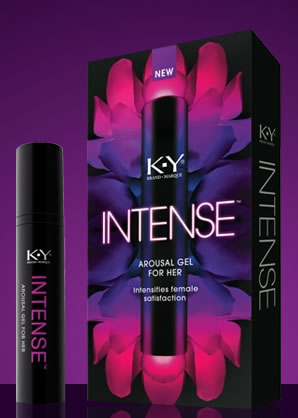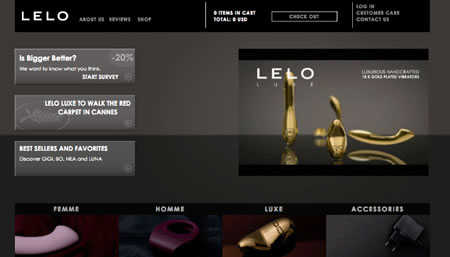
Marketing sex, retail and the recession
There’s been a dire downturn, underlining the bleakly obvious. And it’s been down for everyone — everything — everywhere. All markets — and each of us — everyone’s been affected, crystallizing the clearly understated.
There are, however, glimmers of hope on the horizon. We’ll all keep our fingers crossed.
And in times of challenge, people turn to other things. What other things — what’s the trend, in terms of change in the psyche of all of us linked to the difficulties in the market chain?
In the past, I’ve written a little about the concept of sex — in retail — and I reference that literally: places that celebrate sex. A couple of years ago I wrote about sex and retail in the context of sophisticated store-based and online marketing. Every town, every city offers something to the seedier side of the exchange, and this isn’t about that. It’s about the concept of the sexual encounter being something more uplifting — something humanly celebrative and mutually beneficent and that now people are turning more to it, and turning up the heat, so to speak.
Lovely.
The premise is explored, as well, that this retail concept could be something elegant, refined, authentically real and direct — in messaging takes it away from what might be called the more luridly prurient sense of taste.
But the intriguing aspect of this offering relates to the idea that when times are rough, and the markets, retail and employment are down, other certain sectors pick up. I watch for things like these — obviously, from a business strategy standpoint — it makes sense to observe trending for my clients as well as for our own tactical marketing expressions.
Sex, it turns out, is something that is selling better these days than other times, it’s on the uptick. According to an overview in AdvertisingAge, coupled with increasingly effective analytics, shows that products of a certain sexually supporting nature are growing. Jeff Neff writes that the recession hasn’t slipped the sales of sexual experience accessories — new data reveals that mass market sexual enhancement products are, as he puts it, “producing fireworks in supermarket and drug store aisles.”

Having worked for years with J&J, the owner of the K-Y brand “INTENSE” this strategic business development reach, makes sense. The concept, you might quickly surmise, is about deepening the experience of pleasure.

It’s interesting, having worked in the design labs of J&J, how they tend to approach these lines of marketing — lots of research, trial, consumer interception and lengthy strategic development, sometimes resulting with “go with instinct” directives. And they might be right.
According to Neff’s researches, “first-quarter sales of personal lubricants soared 32% to $41.2 million, according to Information Resources Inc., led almost entirely by continued strength from last year’s launch of Johnson & Johnson’s K-Y Yours & Mine his-and-hers lubricants.” And this represents sales increases before advertising.
Neff continues that “the small but suddenly booming “sexual-enhancement devices” category in food, drug and mass-market stores is growing even faster, albeit off a very small base, up 74% to $10.1 million for the full year ended April 19, according to IRI, with Church & Dwight’s Trojan and Durex products leading the way.” J&J’s spokespeople offer than when the economy’s challenged, “sex goes up”. The marketing people at Church & Dwight offer more specifics, in marketing upticks — and their relationship is about more detailed analyses. And the scale of the market could be far bigger. What it might be, the real answer, is that people are stressed, relying on relationships and networks of friends, and comprises a natural shift. Linked In, Facebook and related societal networks are expanding in dramatic surges — and there are even workshops that support the better utility of these tools in building potentials to re-engage with employment — and to reattach to friends and to find new ones.
Church & Dwight anticipates significant growth, given the increases across the categories and the willingness by retailers, like WalMart to dedicate in-store real estate and prominent shelf space to these intimacy enhancing offerings. The consumer group has, as well, created a study alliance with the Indiana University (famous for Kinsey, by the way) — noted in a release in 2008 — “Indiana University teams with Church & Dwight — to improve the nation’s sexual health — to address critical sexual health issues facing citizens across the United States, the Center for Sexual Health Promotion in Indiana University’s School of Health, Physical Education and Recreation has entered into a unique 3-year agreement with one of the world’s leading sexual health products companies, Church & Dwight, maker of Trojan brand condoms. The agreement establishes the IU center as a strategic research, education and consulting partner with Trojan.” Jim Daniels, VP Marketing at McNeil comments, “the range of expertise at IU makes it a beneficial partner as the company continues its efforts to develop high-quality products and evolve the sexual health of America.”
As in other categories of business, struggling during down times, the potential up selling surge will be in areas of activating trends and “psychic” conditions — a need for connectedness — a renewal of intimacy and relationships during stress. And, concomitant with that presumption, an upturn in marketing and retail positioning of both products and the context in which they are sold.
Hence, a more elegant, upscaled presentation — less to the lascivious, and more to the sensibility of finer design if not luxury. A visual sampling of retail sex boutiques, some of which I’ve been to, others that are international, online presences from abroad, are shown below — all still, one might surmise, growing their business.
Like Lelo, a Scandinavian product grouping: http://en.lelo.com/index.php

Or Jimmy Jane: http://www.jimmyjane.com/index.php

Or Kiki De Montparnasse: http://www.kikidm.com

Is there an answer, that there will be a trend to continue the sense of need, in terms of physical connection and the surge of intimate pleasure? Likely so; it’s being bet on as an investment in the future. For my assessment, it’s a shift to the concept that life is short, and physicality is one important and nurturing condition to living life…well.
What’s your take?
tsg
….
Brandstory: W E L L N E S S
http://blog.girvin.com/index.php?s=wellness
blogs:
http://blog.girvin.com/
https://tim.girvin.com/index.php
profiles:
TED community | profile: http://www.ted.com/index.php/profiles/view/id/825
LinkedIn: http://www.linkedin.com/in/timgirvin
Facebook: http://www.facebook.com/people/Tim-Girvin/644114347
Twitter: http://twitter.com/tgirvin
